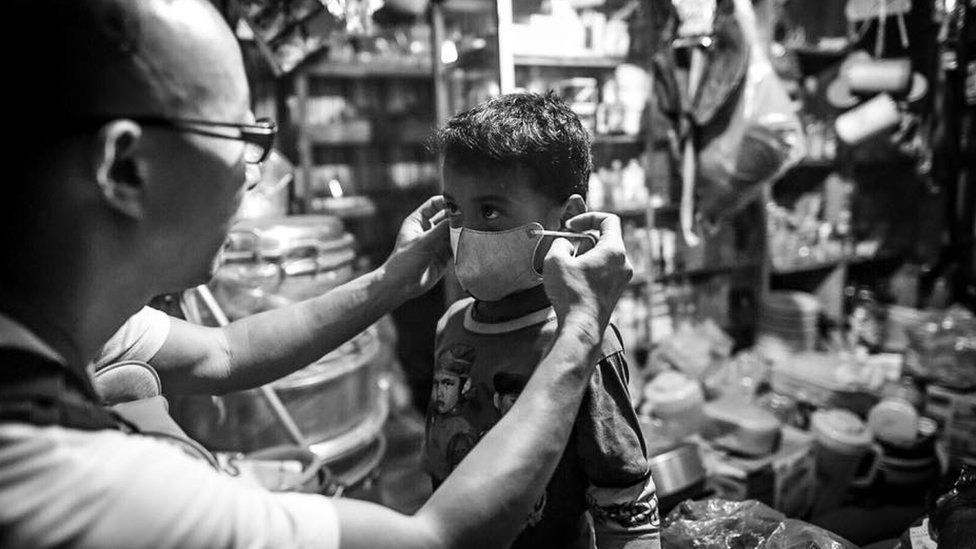Helping Kalimantan at the heart of the haze
- Published

Every year, a haze spreads across South East Asia - at the heart is Indonesia's Central Kalimantan, where raging forest fires cause the hazardous air pollution.
Several provinces of Kalimantan often experience the direct wrath of the fires, with hundreds of hotspots detected.
In Malaysia and Singapore, people are advised to stay indoors when the haze is bad, avoid exercise and wear N95 masks - high quality protection against particles in the air.
But in Kalimantan "a lot of people do not even wear masks here because they are so used to the pollution," relief worker Jonathan How told the BBC.
"They've been conditioned by the haze for decades and are subjected to serious health problems much worse than in Singapore."
This week, Mr How took a team from Singapore to Kalimantan. Their mission: to raise awareness about the dangerous air pollution and distribute 25,000 of the N95 masks.
He described seeing "smoky yellow skies" in the region, where PSI pollutant levels have neared 2,000. Any reading over 300 is considered hazardous.
Hazy days
- 'Slow progress': Firefighters scramble to contain forest fires
- Emergency nursery: One Indonesian town's plan to protect its babies
- Cause for controversy: What causes South East Asia's haze?
- Indonesia 'needs time': Joko Widodo says he needs three years to tackle haze
The team of five arrived in Kalimantan on Monday, where they spent three days visiting local schools and hospitals to distribute masks.
"One lesson we learnt was that haze awareness is key. Though people may politely receive the N95 masks they are given, they will only use them if they truly understand the long-term health impacts of inhaling fine particulates from the haze," Mr How said.
Singaporean photographer Edwin Koo, who also travelled with the team, documented their efforts.
He shared with the BBC one experience of teaching a man how to put on a specialised N95 mask.
"When we first arrived at the airport, we gave out masks to the porters too. One of them took the strap [that were supposed to be looped over the head] and wore it on his ears, like a surgical mask.
It ended up blocking his eyes and he didn't realize it was wrongly worn. So I showed him how to put it on correctly. It was then I realised that the mission was not as simple as it seemed."
Mr Koo also said: "Sometimes we have to cross the line of documentation. In this case, it meant that I had to put my camera down to help people put on masks and explain the hazards of exposing oneself to haze."
Mr Koo has also been actively sharing images from the trip onto his Facebook page.
His album titled, Haze Response Kalimantan 2015, features photographs of Kalimantan's burning peatlands and the daily life of the locals.
Now back in Singapore, Jonathan How and the team are currently exploring new ideas on how to "better inform people about the negative health impact of the haze".
They also want to continue to "encourage people to use the correct masks for their protection".
"We want to meet as many like-minded individuals and organisations as possible, to explore collaboration on longer-term solutions to the haze," he said.
"The regional pollution is a global responsibility, not just of the Indonesian government."
- Published29 September 2015
- Published16 September 2019
- Published2 October 2015